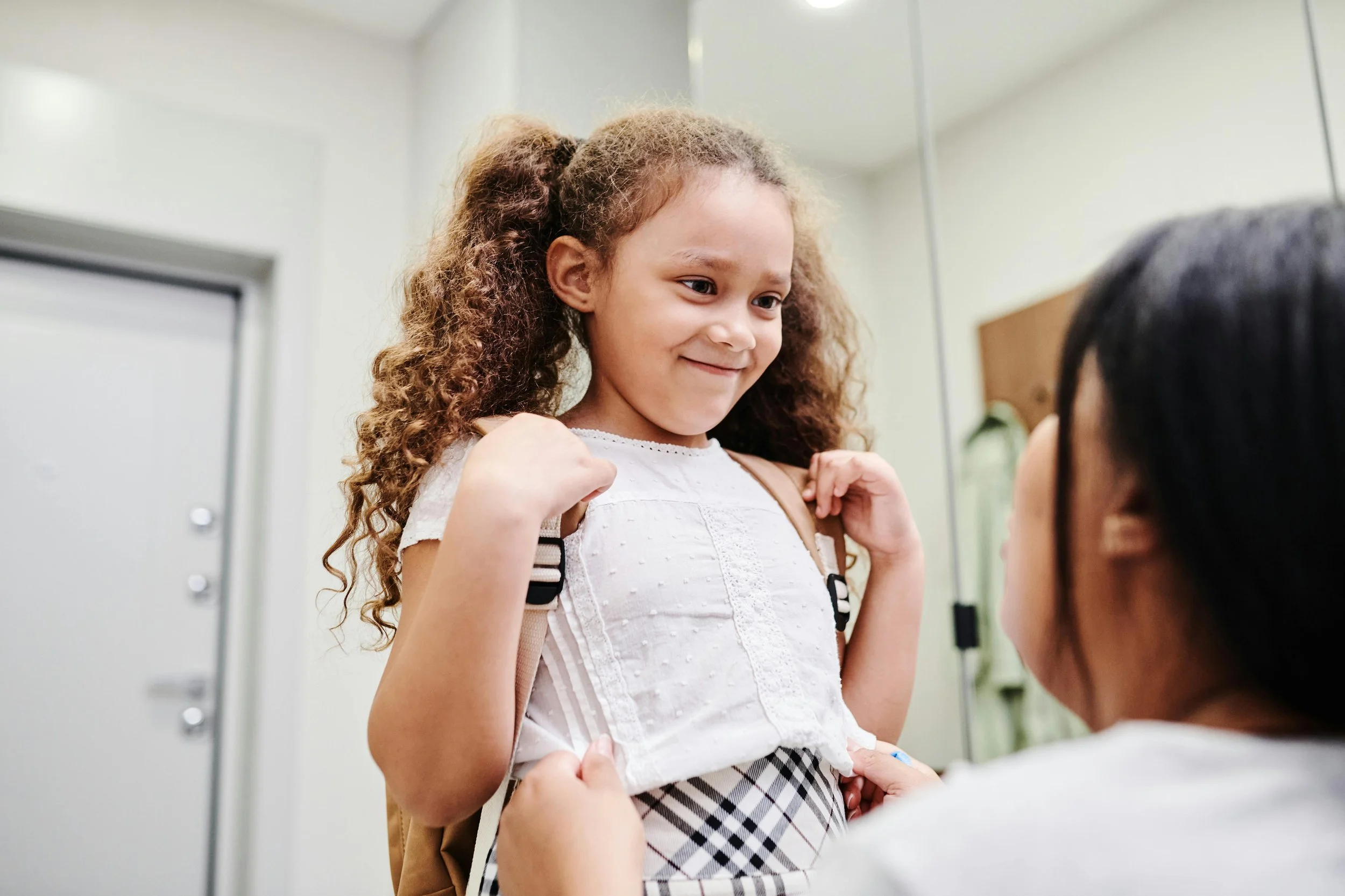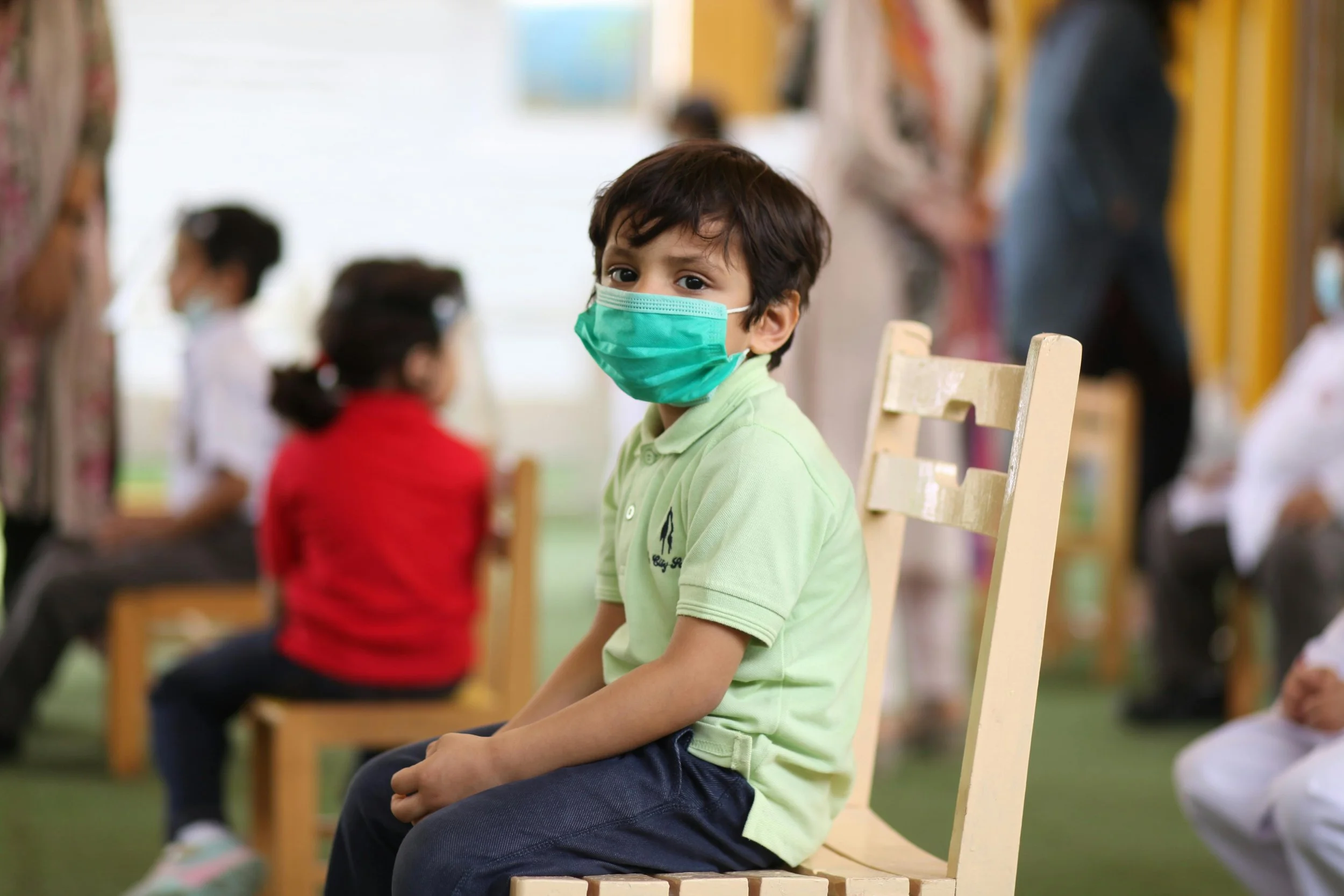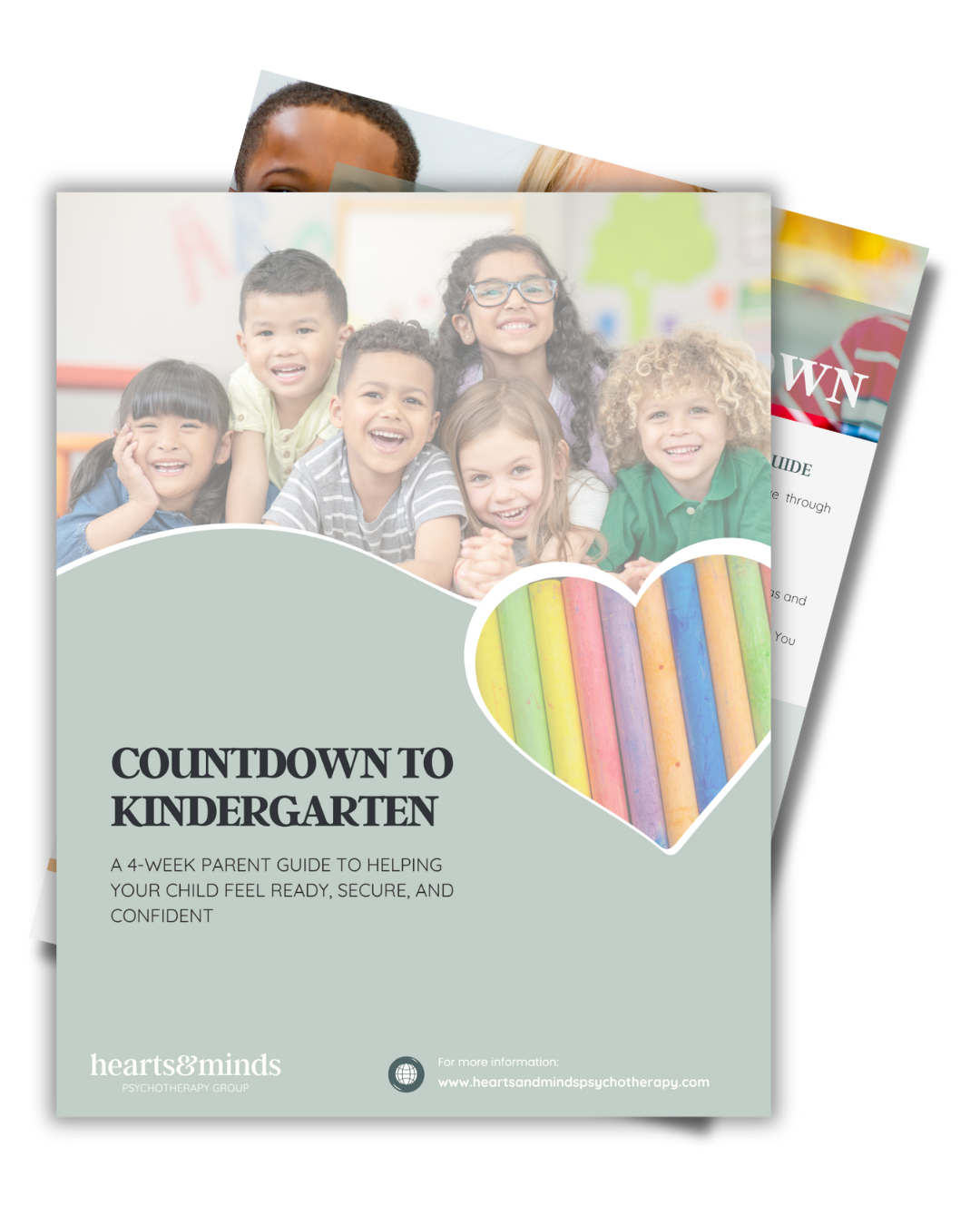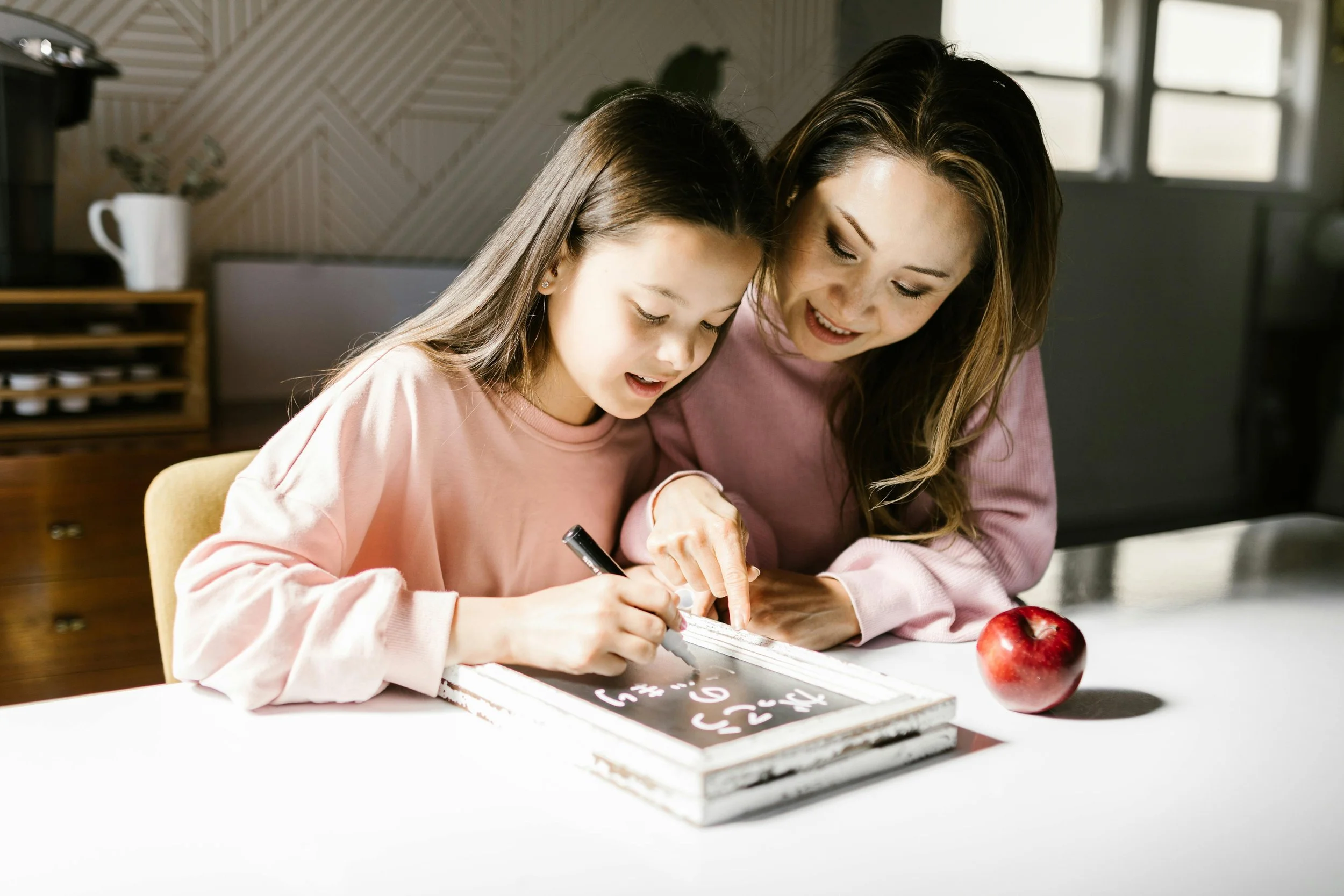Is Your Child Ready for Kindergarten? Why Emotional Readiness Matters More Than ABCs
Every August, pediatrician offices, parenting forums, and preschool pickup lines are buzzing with the same question: “Is my child ready for kindergarten?”
But in reality, most parents aren’t walking around saying those exact words.
They’re noticing things.
Their child still clings at drop-off or cries when the routine changes.
They’re worried because their kiddo melts down over sock seams or loud noises.
Or they wonder, “Is it normal that they still need help with… well, everything?”
They see other kids writing their names in perfect letters or marching confidently into camp, and the doubt creeps in: Are we behind? Are we ready?
Some families try to prepare by drilling letters, practicing shoe-tying, or signing up for tutoring. And sure, those things have value. But after three decades of walking with families through school transitions, I can tell you this:
The kids who thrive in kindergarten aren’t always the ones with tidy handwriting or perfect recall of the alphabet song.
They’re the ones who can bounce back after a tough moment.
Who can ask for help when they need it.
Who can tolerate a little discomfort without unraveling.
Kindergarten readiness isn’t about mastering a checklist.
It’s about building emotional skills that help kids adapt, connect, and keep going in a brand-new environment.
After three decades of working with families navigating school transitions, I’ve learned something surprising: the children who truly thrive in school aren’t always the ones who can perfectly recite the alphabet or write their names in neat letters. True kindergarten readiness has far more to do with emotional readiness for kindergarten, the set of emotional skills that allow a child to adapt, recover, and grow in a brand-new environment.
What Is Emotional Readiness for Kindergarten (And Why It Matters More Than ABCs)
Emotional readiness isn't about being happy all the time or never feeling nervous. It's about a child's ability to:
Navigate big feelings without becoming completely overwhelmed
Recover from disappointment or frustration
Communicate their needs to adults
Handle separation from parents
Adapt to new routines and expectations
Ask for help when they need it
A child who knows their letters but melts down when something unexpected happens will likely struggle more than a child who can adapt to change—even if they’re still learning to write their name. These school readiness skills form the foundation for success well beyond kindergarten.
Research on Emotional Readiness for Kindergarten
Studies consistently show that social-emotional skills are stronger predictors of future academic success than early academic skills. One landmark study followed children from kindergarten to age 25 and found that social-emotional readiness at age five predicted:
Higher graduation rates
Better employment outcomes
Reduced likelihood of mental health issues
Lower rates of substance abuse
The children who thrived weren't necessarily the "smartest" kindergarteners—they were the ones who could manage emotions, get along with others, and persist through challenges.
The Preparation Trap: When Helping Hurts
Here's where many well-meaning parents get stuck. When we see our children anxious about school, our instinct is to eliminate every possible source of stress:
Visiting the school multiple times to make it familiar
Meeting every teacher and staff member ahead of time
Creating detailed schedules and contingency plans
Answering every "what if" question with reassurance
While these actions come from love, they can unintentionally teach children that uncertainty is dangerous and that they can’t cope with surprises, undermining emotional readiness.
The Problem with Over-Preparation
When we eliminate all uncertainty, children learn:
"I can only handle situations I've prepared for"
"If I feel nervous, something must be wrong"
"My parents don't think I can cope with surprises"
Instead of building confidence, over-preparation can increase anxiety and create dependence on external structure and reassurance—undermining emotional readiness for kindergarten.
If shifting away from over-preparing feels daunting, our Countdown to Kindergarten guide offers a gentle, week-by-week approach that blends emotional readiness activities with just enough practical preparation to help your child feel capable and excited for the first day.
A Different Approach: Building Emotional Resilience
Instead of eliminating all uncertainty, focus on building emotional skills for school and resilience:
Reframe the Conversation
Instead of: "Don't worry, we'll visit the school so many times you'll know everything before you start."
Try: "We’re going to visit the school so you can get familar with it, but Kindergarten will have some surprises—new routines, different activities, maybe some unexpected changes. That's normal for new experiences. I trust that you can handle new things, even when they feel a little uncertain."
Validate Feelings Without Rescuing
Instead of: "You don't need to be scared! School will be so fun!"
Try: "I can see you have some big feelings about starting school. It makes sense to feel nervous about something new. But you know what? You can feel nervous and still be ready to go."
Focus on Their Capabilities
Instead of: "If you're too scared, we can wait another year."
Try: "This feels big to you, and you've handled big things before. Remember when you learned to ride your bike? You were nervous then too, but you kept trying."
Practical Strategies for Building Emotional Readiness
1. Create a "Worry and Wonder" Practice
Instead of trying to eliminate your child's worries about school, help them balance their concerns with curiosity:
Worry: "What if I don't make friends?"
Wonder: "I wonder what games kids play at recess?"
This teaches children that it's normal to have mixed feelings about new experiences and that worry doesn't have to take up all the space.
2. Practice Emotional Language
Help your child develop vocabulary for their feelings. When they're upset, avoid rushing to fix it. Instead:
"I notice you're having a big feeling right now."
"Can you tell me what that feeling is like in your body?"
"What do you think that feeling is trying to tell you?"
3. Build Confidence Through Small Challenges
Look for age-appropriate opportunities for your child to navigate mild discomfort or uncertainty:
Ordering their own food at a restaurant
Talking to the librarian to ask for help finding a book
Playing at the park while you sit on a bench nearby
Spending time with relatives or trusted friends without you
4. Teach the "What If" Response
When your child gets stuck in anxious "what if" spirals, resist the urge to answer every question. Instead:
"You're having a lot of worried thoughts about shool. That makes sense—starting kindergarten is a big deal. I wonder what would happen if you?"started with school without all of your questions answered?”
This acknowledges their feelings while redirecting their focus and teaching them they don't need to solve every hypothetical problem before they can move forward.
The Parent’s Role in Kindergarten Transition Tips
Here's something no one talks about: your child's school anxiety might be triggering your own.
Maybe you hated school. Maybe you were the anxious kid. Maybe their tears bring back memories of feeling scared and unprepared.
Your child needs you to be their calm in the storm, not another storm they have to weather.
Quick Check-In Questions for Parents:
Am I responding to their emotions or my own memories?
What fears do I have about their school experience?
How can I stay present for their feelings without taking them on as my own?
Signs Your Child IS Emotionally Ready (Even If They're Nervous)
Remember, emotional readiness doesn't mean fearlessness. Look for these signs that your child is developing the skills they need:
They can communicate when they need help
They recover from disappointment within a reasonable time
They can try new things even when they feel nervous
They show curiosity about school alongside their worries
They can separate from you for short periods with support
They're starting to understand that feelings change
If you’d like a simple way to build on these signs of readiness, the Countdown to Kindergarten guide walks you through small, meaningful steps in the weeks leading up to school—keeping the focus on emotional readiness while making space for excitement and curiosity.
The Bottom Line on Emotional Readiness for Kindergarten
Your child doesn't have to arrive at school perfectly formed and fearless. They just need to know that they're capable of learning, growing, and handling whatever comes their way.
Every big feeling about school is practice for emotional regulation. Every nervous moment is an opportunity to build courage. Every time they try something new despite feeling uncertain, they're developing the resilience that will serve them far beyond kindergarten.
The academic skills will come. The real question isn't whether they can write their name perfectly or count to 100—it's whether they believe in their ability to figure things out, ask for help when they need it, and keep going even when things feel hard.
That's the kind of readiness that creates lifelong learners.
About the Author
Suri Nowosiolski, LCSW, MSpEd, is a licensed clinical social worker with over 30 years of experience working with children, teens, and families. She specializes in anxiety disorders and is trained in SPACE (Supportive Parenting for Anxious Childhood Emotions), an evidence-based approach for helping families navigate childhood anxiety. Suri is the founder of Hearts & Minds Psychotherapy Group and creator of the "Countdown to Kindergarten" parent guide.
Looking for more support?
SPACE: Discover your power as a parent to free your child from anxiety. Learn SPACE, a parent-based treatment clinically proven to effectively reduce child anxiety – through nothing but smarter, more informed parenting.
PEERS® for Preschoolers: Help young children develop social independence and confidence through our evidence-based parent education group:
Tween Social Anxiety Group: Help your 9–12-year-old build confidence and feel more at ease in social settings.
Teen Social Anxiety Group: Build confidence and independence in social situations for middle and high school students:
DBT-C Parent Group: Learn skills to support children's emotional independence and regulation while reducing family stress:






